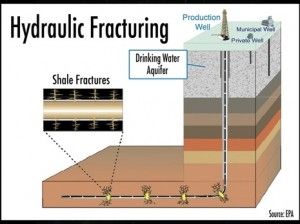State Senate Democrats Crack Down on Fracking
By Dave Roberts
Despite the more than three-decade safety record of hydraulic fracturing in California, Democrats served notice last week that they will be cracking down on the energy-production method in the coming year.
The frack fight was led by Senate President Pro Tem Darrell Steinberg, D-Sacramento, at the Jan. 9 Senate Rules Committee hearing. The committee was considering the reappointment of Mark Nechodom as director of the Department of Conservation, which he has headed for the past year. That department oversees oil and gas drilling, among other responsibilities, and is drafting new regulations on the fracking industry.
One of Steinberg’s concerns is that the proposed regulations would not require companies to disclose the chemicals they use in the fracking process. Nechodom responded that the law allows companies to keep secrets from their competition.
“This is a very important and somewhat dicey issue,” said Nechodom. “If you do not give credence to the notion of trade secrets, that the companies using this technology and evolving this technology fairly rapidly really have no excuse not to disclose, then that prejudices the answer. But if you acknowledge that there is a trade secret component, just as there is with Coca-Cola or many other products where we have the Uniform Trade Secrets Act and actively protect those trade secrets in balance with the protection of public health and safety, then that’s where we are on the horns of a dilemma here.
“I think you strike the balance at disclosing sufficiently so that third-party analysis that is trusted can tell the public if it’s safe, not safe or should be in limited use. We do not have those mechanisms in place. We do not have the authority to set up that. If we were to require in our regulations disclosure of the ingredients and the recipe, which is the trade secret, then we as a public agency are subject to a Public Record Act request, which vitiates the trade secret provision.”
Not Coca-Cola
That answer did not satisfy Steinberg.
“This is not Coca-Cola to me,” he said. “How to differentiate the taste of Coca-Cola from Pepsi is a very different question of whether or not the brew of chemicals injected into the ground might affect the health and safety of a community because of water-supply contamination. So I’m not sure that the comparison you make is apropos. To me, health and safety ought to be preeminent.”
Steinberg called for the imposition of emergency regulations on fracking until permanent regulations are implemented.
Nechodom responded that the emergency regulations would be an over-reach: “It would require us to produce evidence that we actually have evidence of some kind of manifest damage or an emergency by doing this.”
A dissatisfied Steinberg responded, “It doesn’t sound like you’re erring on the side of public health when there are all kinds of concerns raised.”
Frustration
Sen. Hannah-Beth Jackson, D-Santa Barbara, is also concerned. She wants a moratorium on fracking until permanent regulations are in place.
“I recognize, having been here before and having crossed swords a little bit with the oil industry, that they are a very fearsome adversary when they want to be,” she said. “I think that’s a part of the frustration that a lot of us have been feeling over this whole issue of fracking. The impacts of shooting unknown chemicals at very high intensity into hundreds of miles of the earth’s core is a scary proposition for a lot of us. Particularly without really understanding it or knowing exactly what’s being shot down through the ground.
“So I think for a lot of us our concern is based upon perhaps a fear. And the fact that it’s been done in secret. And that this is something that the public is concerned about. There’s a difference between Coca-Cola, which the only thing it’s going to do is mess up your stomach, given what’s in it, versus messing up the planet. And fracking could very well have those kinds of consequences. There’s a lack of confidence in what is going on in this industry. The only way the public is going to be satisfied that they are protected is if we get full and complete information.”
Steinberg and Jackson are also concerned that companies need only provide 10 days’ notice to the department before they can begin fracking a well. Jackson suggested extending that to a six-month wait.
Asked Sen. Bill Emerson, R-Redlands, who said he supports Nechodom’s work in developing regulations, “Can you assure us that the barrier of our drinking water would be safe under the scientific provisions that you would implement in our hydraulic fracturing system?”
Nechodom responded that there is very little danger of drinking water contamination because aquifers are less than 1,200 feet deep while most fracking operations occur 4,000-8,000 feet below ground, and there are several layers of solid rock between the two.
“The likelihood that fracking fluid, oil, saline water, anything that would be from a geological formation that we are interested in, being in contact with the aquifer, is extremely low,” he said. “We currently do not have evidence that fracking chemicals have been introduced to our drinking water aquifers. That doesn’t mean we shouldn’t be looking very carefully. And I believe increased scrutiny, that’s not only in our regulations but also ahead of us in coming years, is absolutely necessary.”
A representative of the Western States Petroleum Association, whose members are responsible for the 638 fracking wells in California, offered Nechodom “condolences on him being in a position of an issue of such hysteria and controversy.”
Asked for response to Steinberg and Jackson’s concerns, Tupper Hull, WSPA vice president for strategic communications, said, “Our view is the [Department of Conservation’s] Division of Oil, Gas and Geothermal Resource’s effort to draft new regulations for hydraulic fracturing is the appropriate place for this issue to be addressed. Calls for moratoriums or emergency regulations of hydraulic fracturing are premature, especially in light of the fact the technology has been used in California for many decades and has never been linked to any hazard or risk to the environment in California.”
Assurance
Despite Nechodom’s efforts to satisfy Steinberg and Jackson that his department will do due diligence in developing fracking regulations — and despite an outpouring of support for Nechodom by both fracking industry officials and environmentalists — Steinberg held Nechodom’s reappointment hostage until he received assurance in writing that his concerns will be addressed.
“You said that in terms of the hierarchy of priority that health and safety comes before trade secrets,” Steinberg said to Nechodom. “That’s not in the draft [regulations]. I would like written acknowledgement that you and the administration stand behind that hierarchy. I will await that before we decide to take this up for a vote on the floor.”
Nechodom provided that letter on Friday. And at the start of Monday’s Senate floor session, Steinberg urged a vote in support of Nechodom’s appointment. The senators duly complied, 34-0.
Nechodom plans to begin holding meetings next month to develop the final regulations. The process is estimated to take eight to 10 months.
Related Articles
Pension spikes crumbling CA roads
From roads to bridges and well beyond, California’s neglected infrastructure won’t receive relief this election cycle. For years, the state
Study: Green power worst way to cut CO2
This is Part 1 of a two-part series. Most people probably know more about Cap’n Crunch cereal than about
Cheap gas: Another reason to move to Texas
Oct. 7, 2012 By John Seiler The following picture is from GasBuddy.com, which tracks gas prices nationally. The cheapest gas,





